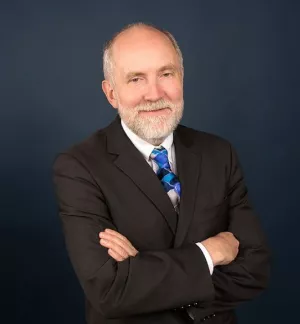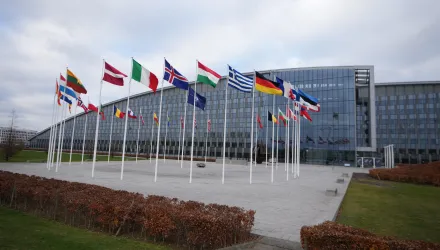The oil gushing into the Gulf of Mexico is only the most recent symbol of a far-reaching global energy crisis. Coping with this economic, national security and environmental crisis will be one of humanity’s greatest challenges in the 21st century. There is no magic bullet: Every energy technology will be sorely needed — including nuclear energy.
Russia, the United States and other countries must cooperate to enable large-scale growth of nuclear energy around the world while achieving even higher standards of safety, security and nonproliferation than are in place today. This will require building a new global framework for nuclear energy, including new or strengthened global institutions.
Without such a new framework, unbridled competition in nuclear energy could pose grave risks. Even a single catastrophe — whether a Chernobyl-scale accident, a successful sabotage (a “security Chernobyl”) or, worse yet, a terrorist nuclear bomb — would doom any prospect for nuclear growth on the scale needed to make a significant contribution to coping with climate change.
Nuclear companies are forming partnerships across the globe. But Russian and American companies cannot do so — because Russia and the United States, the two countries with the world’s largest infrastructures of nuclear experts and facilities, do not yet have a nuclear cooperation agreement in force. This makes no sense. The United States has such agreements with virtually every other major nuclear country on earth. Why not with Russia, one of the countries whose nuclear expertise and facilities might be most helpful? While Russia and the United States have many disagreements, they have deep common interests in reducing the dangers of nuclear proliferation, nuclear terrorism and global climatic disruption — and those interests can best be served through cooperation, not isolation or confrontation.
An agreement that would provide the necessary legal foundation for cooperation was negotiated in 2008, but then withdrawn from congressional consideration in the midst of the disputes over the war in Georgia that year. President Obama resubmitted the pact in May of this year. The agreement deserves strong congressional support.
What difference would such an agreement make? While important U.S.-Russian cooperation on securing nuclear stockpiles is already underway, cooperation in many other areas is stymied. Today, U.S. and Russian firms cannot work together to develop and market new reactor designs. U.S. and Russian experts are limited in working together to develop safer and more-secure reactor and fuel-cycle technologies for the future. In many cases, U.S. scientists cannot even visit nuclear sites to discuss ideas for cooperation if there is no government-to-government agreement for that cooperation in place.
In particular, the two countries should work with others to establish a multinational consortium to market small and medium-sized factory-built reactors around the world. Designed for passive safety and high security, these reactors could be provided with their fuel built-in, and the consortium could offer a “cradle-to-grave” service, operating them and then taking the reactors and the fuel away when they reached the end of their useful lives. This would make nuclear energy available to many countries that do not yet have the infrastructure to manage today’s huge, complex nuclear reactors, without building up expertise and facilities that could help them build nuclear weapons.
Some have objected that the United States should not enter into nuclear cooperation with Russia because of the nearly completed Russian-builce/themes/advanced/langs/en.js" type="text/javascript"> t civilian reactor in Iran. Washington in the past has argued Moscow should cut off such cooperation until Iran complies with U.N. resolutions, but Moscow has maintained it is better to remain engaged with Iranian nuclear decision-makers. Despite these differences, Russia and the United States are of one mind in pushing Iran to verifiably abandon its nuclear weapons ambitions, and both have supported a series of U.N. Security Council sanctions resolutions (though Moscow doubts the effectiveness of stronger sanctions). The United States will have a far better chance of working with Russia on a common approach to Iran if a new structure for U.S.-Russian cooperation has been put in place than it will if it rejects nuclear cooperation with Russia.
The choice, fundamentally, is whether Russian, American and global interests will be better served if the world’s largest nuclear complexes — which manage vast stockpiles of nuclear weapons, materials and expertise whose future is crucial to the security of the world — work together, or if they work against each other. To us, the answer seems obvious.
Evgeniy P. Velikhov is president of the Russian Research Center “Kurchatov Institute,” Russia’s leading nuclear laboratory, and a former president of the Nuclear Society of Russia. Matthew Bunn, a former White House staffer on nuclear policy, is an associate professor at Harvard’s Kennedy School of Government.
Velikhov, Evgeny and Matthew Bunn. “Nuclear Energy and the Global Energy Crisis — U.S.-Russian Cooperation Can Help.” The Hill, July 22, 2010





